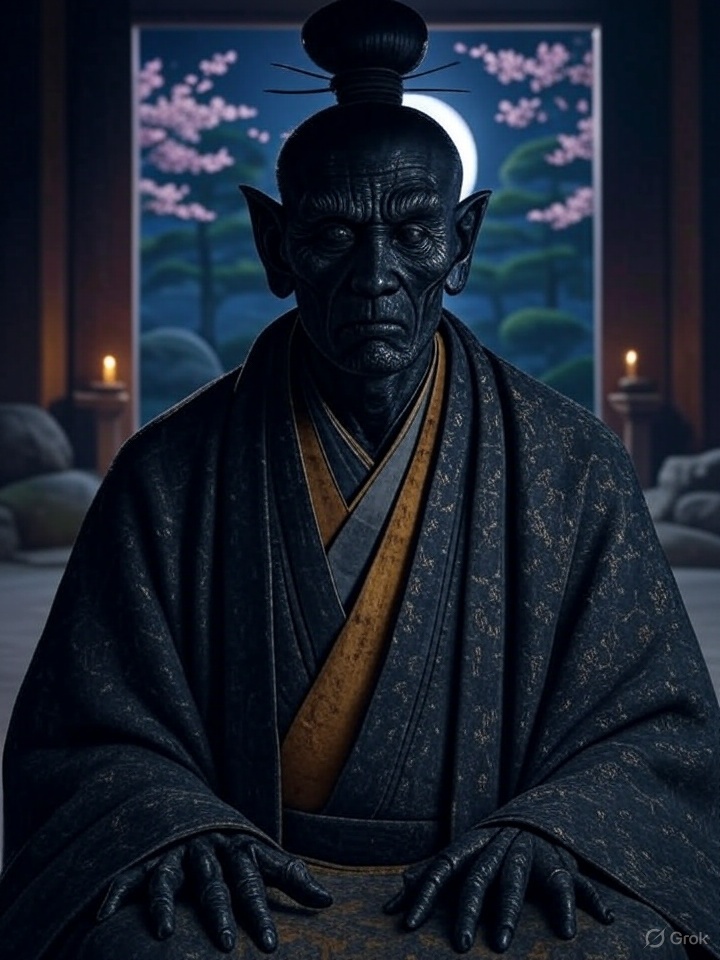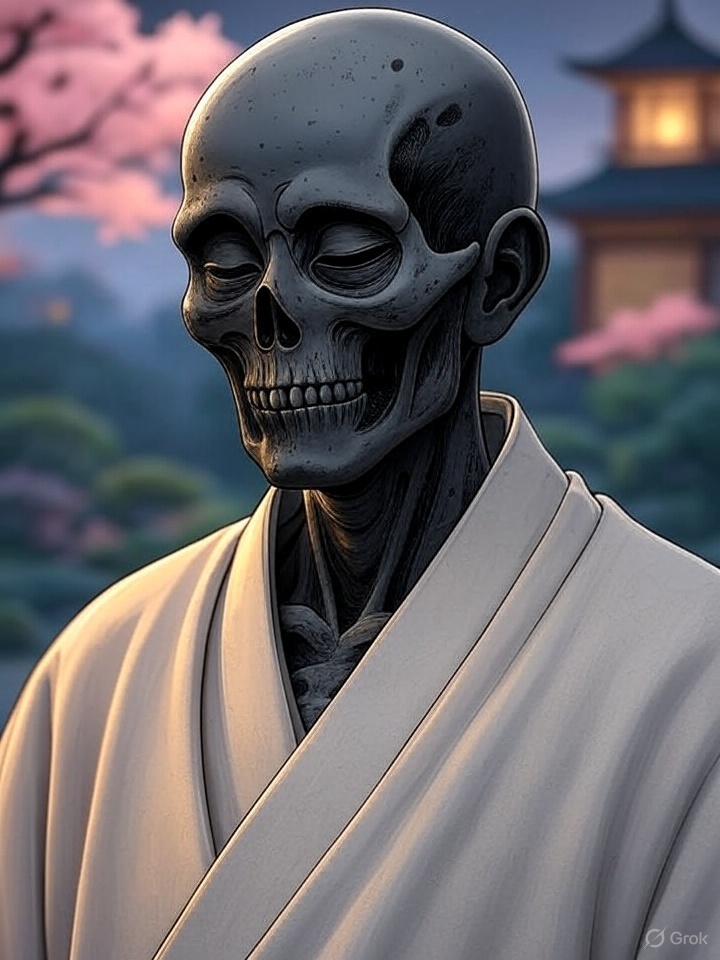Name Meaning
Overview
Nuribotoke (塗仏) can be translated as "lacquered Buddha" or "painted corpse," a name that ironically reflects its ghoulish appearance.
- Nuri (塗) = painted or lacquered
- Botoke (仏) = Buddha or departed soul
Origin
- Found in Edo-period yokai picture scrolls and ghost stories.
- Linked with eerie events around Buddhist altars in homes.
- Its image invokes death, decay, and spiritual corruption.
Appearance
- Appears as a decaying human body with darkened skin.
- Its eyeballs dangle grotesquely from the sockets.
- May emerge from household altars in the night.
Behavior & Myths
- Silently appears and vanishes, instilling horror in the viewer.
- Associated with forgotten prayers or neglected altars.
- Some tales describe it stealing offerings or glaring menacingly at guests.
Symbolism
- Represents death improperly honored or spirits denied peace.
- Warns against neglecting familial or religious duties.
- A visual reminder of mortality and spiritual balance.

